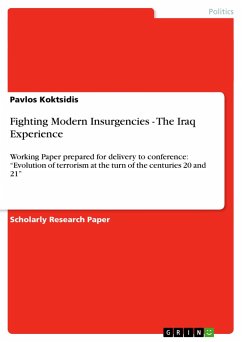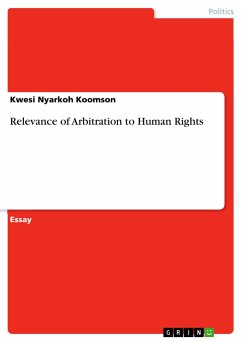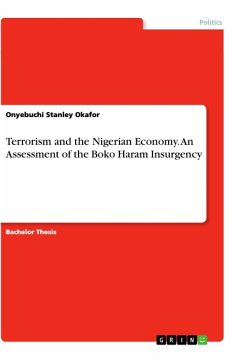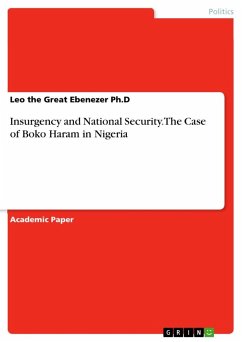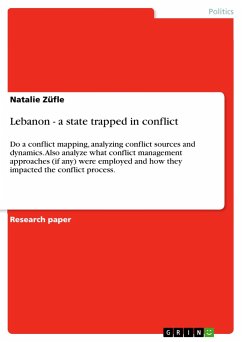Research Paper (undergraduate) from the year 2007 in the subject Politics - International Politics - Region: USA, Queen's University Belfast, language: English, abstract: This paper analyzes modern insurgency and emphasizes some of the difficulties and dilemmas in contemporary counter-insurgency policy-making in Iraq. The analysis starts with the definition (s) and structural components of an insurgency. Differences between classic and modern insurgencies are underlined with the aim of presenting the evolution and adjustability of insurgent warfare. Modern insurgency is becoming increasingly networked, transnational, tactical and diverse in its methods. Conventional means are increasingly used against soft targets causing maximum loss and damage. A metastasis of warfare from the rural terrain to the urban domain has complicated efforts to counter violence. The paper argues that the question over "doctrine versus flexibility in counter-insurgency policy-making should be thoroughly re-examined. Given that insurgencies are social events, deeply rooted in the social and economic conditions of a society, responses to violence should focus on breaking the very conditions leading to radicalization and recruitment. Expanding the scope of counter-insurgency beyond military engagement, devising timely responses and negotiating with local militant actors are much more important aspects for ending a crisis that could escalate into insurgency or civil war.

